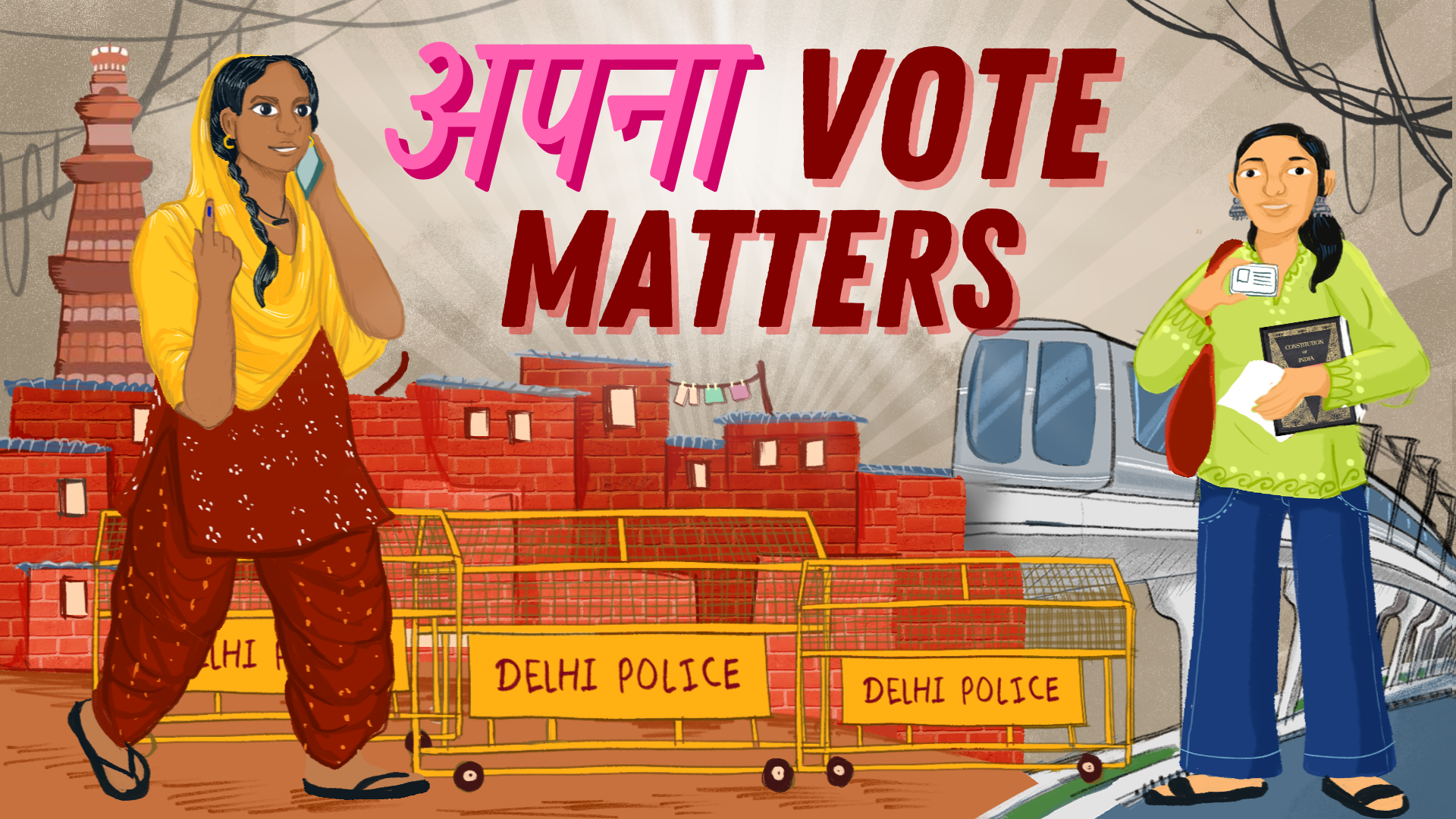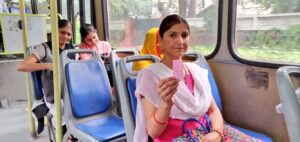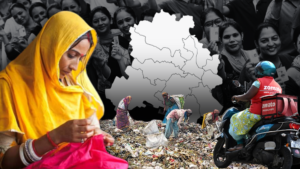These assembly elections are being fought against a backdrop of precarity. Anxieties over housing and infrastructure, women’s safety, healthcare access, dignified and decent work for scheme and informal workers, impunity of police officials, and poor management of air pollution and flash floods. There are critical and glaring gaps in Delhi’s governance and they look like this:
- Poor air quality shortens the life span of Delhiites by almost 12 years;
- Contract-based employment imperils the safety and work conditions of sanitation and transport workers who have reiterated their demand for regularisation;
- Crime against women remains at an all time high, with Delhi recording an average of three rapes in a day;
- Acute shortage of drugs routinely hinder the care of patients with thalassemia, tuberculosis and cancer, among other life-threatening conditions;
- Inadequate housing and arbitrary evictions have resulted in almost a third of the residents living in unsafe housing, including slums, jhuggi-jhopri clusters, villages, and unauthorised colonies which lack access to reliable water and electricity supply.
Our FEN will draw attention to many of these concerns. The urban sprawl in the last few decades has expanded not only the city’s borders but also its social and cultural identity. The electorate reflects the variety of aspirations, histories, and challenges that thrum at all corners of this capital city. Therefore, any story about drug shortage needs larger context about healthcare governance. Unauthorised settlements and housing must look at the history and waves of settlements, and situate them within the urban planning agendas of subsequent governments and the politics that shape them.
These issues thus demand your patience and attention.
Our journalism will bring to you the information you need for voting but also for holding those in power to account during and beyond the elections. Free bus or metro travel for women is a popular promise but as our report showed, women in Delhi often face humiliating remarks and gender-discriminatory practices while exercising the power of their ‘pink tickets’. One month prior to the elections, the BJP inaugurated new flats in Northwest Delhi to house displaced residents. What lives do women lead after resettlement? Women struggled the most with travel and finding jobs as these houses are located in areas with little access to roads, water, or sanitation, we found. Those without housing battle for safety everyday on Delhi’s streets, a challenge intertwined with the struggle to survive the brutal heat. In Delhi, at least 200,000–250,000 individuals live in homelessness, including women, children, the elderly, transgender persons, persons with disabilities and other vulnerabilities.
We will revisit and follow-up with these crucial issues around housing, women’s safety, and work conditions in contractual labour. This continuity in stocktaking is a necessary reminder that people’s collective well being is at the heart of any election in a democracy.
Our FEN is rooted in the simple idea that for the elected to be inclusive and accountable, the electorate must be informed and involved. This mission also needs your direct participation. What would you like to know? Write to us at contact@behanbox.com.
In this Delhi Election cycle, apna vote matters. Follow BehanBox as we dissect the rigour outside of rhetoric, evaluate performance of past promises, and favour long-term vision over vitriol. Watch this space for more.





